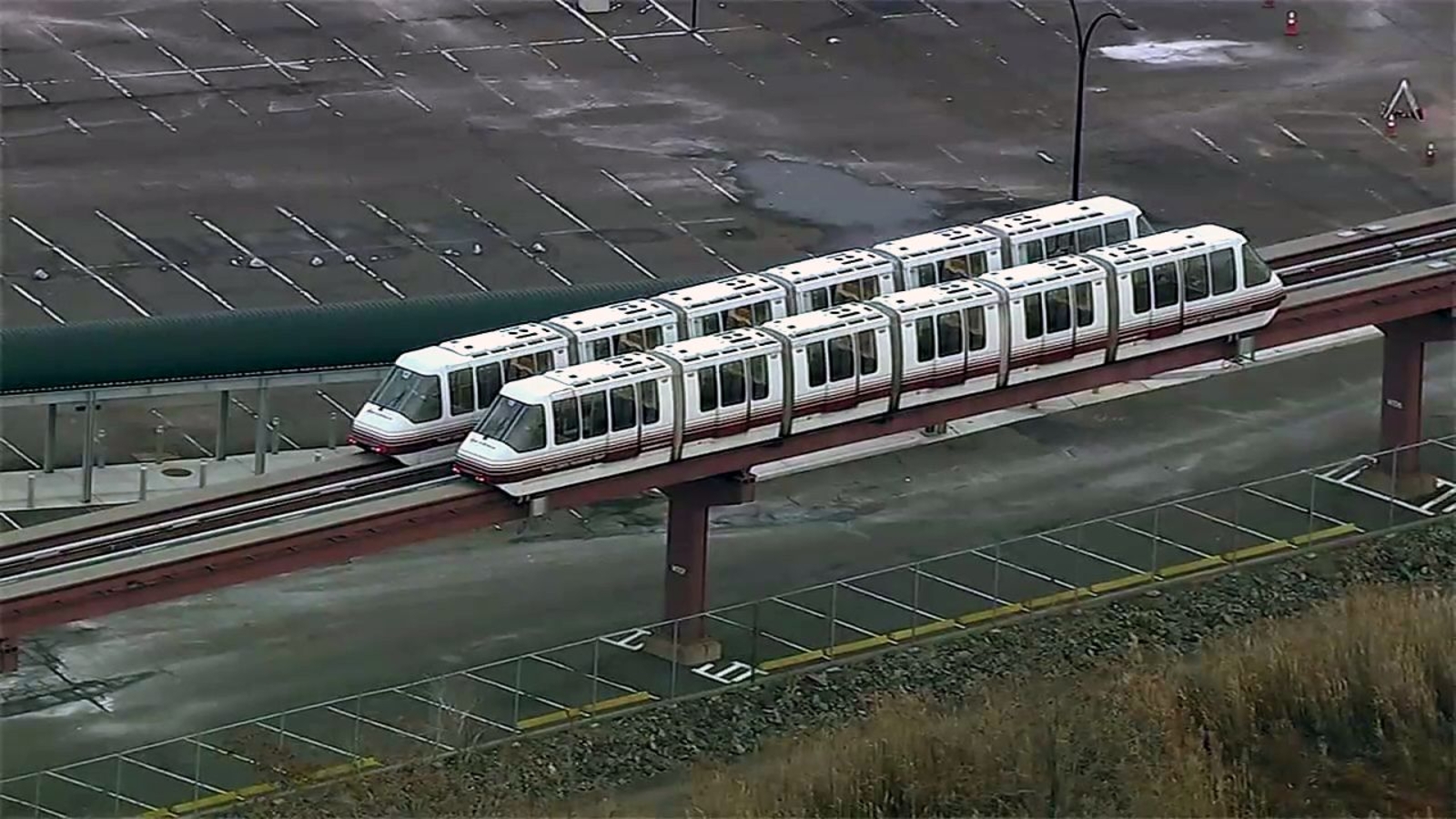7-Day Newark Airport Shutdown: The Staffing Crisis Explained

Table of Contents
A hypothetical 7-day shutdown of Newark Liberty International Airport (EWR) due to a severe staffing crisis would be catastrophic. This article explores the potential causes of such a crisis, its devastating impact on air travel, and what steps could be taken to prevent such a scenario. We'll delve into the complexities of airport operations and the human resources challenges facing this crucial transportation hub, focusing on the critical issue of Newark Airport staffing shortages and EWR delays.
<h2>The Root Causes of a Potential Newark Airport Staffing Crisis</h2>
A complete shutdown of EWR isn't just a hypothetical; it's a stark warning of the vulnerabilities within the air travel system. Several contributing factors could converge to create a perfect storm of airport staffing shortages:
<h3>Pilot Shortages</h3>
The post-pandemic surge in air travel demand has outstripped the supply of qualified pilots. This shortage is exacerbated by:
- Increased demand for air travel post-pandemic: The rebound in air travel has created an unprecedented demand for pilots, exceeding the capacity of current training programs.
- Retirement of experienced pilots: A significant number of experienced pilots are reaching retirement age, further shrinking the available pool of qualified professionals.
- Lengthy and expensive pilot training programs: The rigorous training required to become a pilot is both time-consuming and costly, limiting the number of individuals who can pursue this career path.
- Impact on flight schedules and cancellations: Pilot shortages directly translate to flight cancellations and disruptions, impacting thousands of passengers daily and creating significant delays at Newark Airport and other major hubs.
<h3>Air Traffic Controller Shortages</h3>
The high-pressure, high-stakes environment of air traffic control contributes to significant burnout and attrition. This, combined with:
- High-stress work environment leading to burnout and attrition: The demanding nature of the job leads to high stress levels and increased turnover among air traffic controllers.
- Insufficient training programs and recruitment efforts: A lack of investment in robust training programs and effective recruitment strategies contributes to the shortage.
- Impact on flight delays and safety concerns: Shortages in air traffic control staff can lead to significant flight delays and, more importantly, raise serious safety concerns.
<h3>Ground Crew and Baggage Handler Shortages</h3>
Ground crew and baggage handlers often face low wages and challenging working conditions, leading to high turnover rates. This is compounded by:
- Low wages and poor working conditions: Many ground crew and baggage handlers are employed by third-party contractors, often with low wages and benefits.
- Increased workload due to passenger surge: The post-pandemic passenger surge has increased their workload significantly, leading to burnout and increased absenteeism.
- Impact on baggage handling efficiency and potential delays: Shortages in this area directly impact baggage handling efficiency, leading to lost luggage and significant delays for passengers.
<h3>TSA Agent Shortages</h3>
Understaffing at Transportation Security Administration (TSA) checkpoints results in:
- Long security lines and passenger frustration: Longer wait times at security checkpoints lead to passenger frustration and potential missed flights.
- Understaffing leading to increased wait times: Insufficient TSA staffing means longer lines and delays for all passengers.
- Negative impact on passenger experience and potential flight disruptions: These delays create a ripple effect, potentially disrupting flight schedules and negatively impacting the overall passenger experience.
<h2>The Devastating Impact of a Newark Airport Shutdown</h2>
A 7-day shutdown of Newark Airport would have far-reaching and devastating consequences:
<h3>Economic Consequences</h3>
- Loss of revenue for airlines, businesses, and the local economy: The economic impact would be immense, affecting airlines, businesses reliant on airport traffic, and the local economy as a whole.
- Disruption to supply chains and international trade: The airport serves as a crucial link in global supply chains. A shutdown would disrupt these chains, impacting businesses worldwide.
- Job losses in the hospitality and tourism sectors: Hotels, restaurants, and other businesses in the surrounding area would suffer significant job losses.
<h3>Passenger Disruption</h3>
- Flight cancellations and significant delays: Thousands of flights would be cancelled or significantly delayed, stranding countless passengers.
- Stranded passengers and logistical nightmares: Passengers would face difficulties finding alternative travel arrangements, accommodations, and support.
- Increased travel costs and accommodation expenses: The costs associated with rebooking flights and finding alternative accommodations would skyrocket.
<h3>Reputational Damage</h3>
- Negative impact on Newark Airport's image and future growth: A shutdown would severely damage the airport's reputation, potentially impacting future investments and growth.
- Loss of confidence in air travel infrastructure: It would erode public confidence in the reliability and efficiency of air travel infrastructure.
- Potential for long-term consequences for tourism and business: The negative publicity could deter tourists and businesses from using the airport in the future.
<h2>Preventing Future Newark Airport Staffing Crises</h2>
Preventing future crises requires a multi-pronged approach:
<h3>Increased Wages and Benefits</h3>
Attracting and retaining qualified personnel requires competitive wages and benefits packages.
<h3>Improved Working Conditions</h3>
Creating a more positive and supportive work environment will improve employee morale and reduce turnover.
<h3>Streamlined Hiring Processes</h3>
Accelerating the recruitment and training of new employees is vital to quickly fill vacancies.
<h3>Investment in Technology</h3>
Automating tasks to improve efficiency and reduce workload can alleviate some of the pressure on staff.
<h3>Proactive Workforce Planning</h3>
Anticipating future needs and adjusting staffing levels accordingly is crucial to prevent future shortages.
<h2>Conclusion</h2>
A 7-day shutdown of Newark Airport due to a staffing crisis would have catastrophic consequences. Addressing the root causes of airport staffing shortages through improved wages, working conditions, and recruitment strategies is crucial. Investing in technology and implementing proactive workforce planning are also essential steps to prevent future crises. Understanding the complexities of the Newark Airport staffing crisis is vital to safeguarding the smooth operation of this critical transportation hub. Let's work together to prevent another potential Newark Airport shutdown and ensure a reliable and efficient air travel experience. Learn more about the potential impact of Newark Airport staffing shortages and how to advocate for solutions.

Featured Posts
-
 The Plight Of Child Drivers In Yemens Civil War
May 06, 2025
The Plight Of Child Drivers In Yemens Civil War
May 06, 2025 -
 Seeing Patrick Schwarzeneggers Bronco In Los Angeles
May 06, 2025
Seeing Patrick Schwarzeneggers Bronco In Los Angeles
May 06, 2025 -
 The May Vogue Cover Featuring Colman Domingo A Ap Rocky And Pharrell
May 06, 2025
The May Vogue Cover Featuring Colman Domingo A Ap Rocky And Pharrell
May 06, 2025 -
 Commodity Market Update 5 Key Charts To Track This Week
May 06, 2025
Commodity Market Update 5 Key Charts To Track This Week
May 06, 2025 -
 Why Colman Domingo Wont Replace Jonathan Majors As Kang His Classy Explanation
May 06, 2025
Why Colman Domingo Wont Replace Jonathan Majors As Kang His Classy Explanation
May 06, 2025
